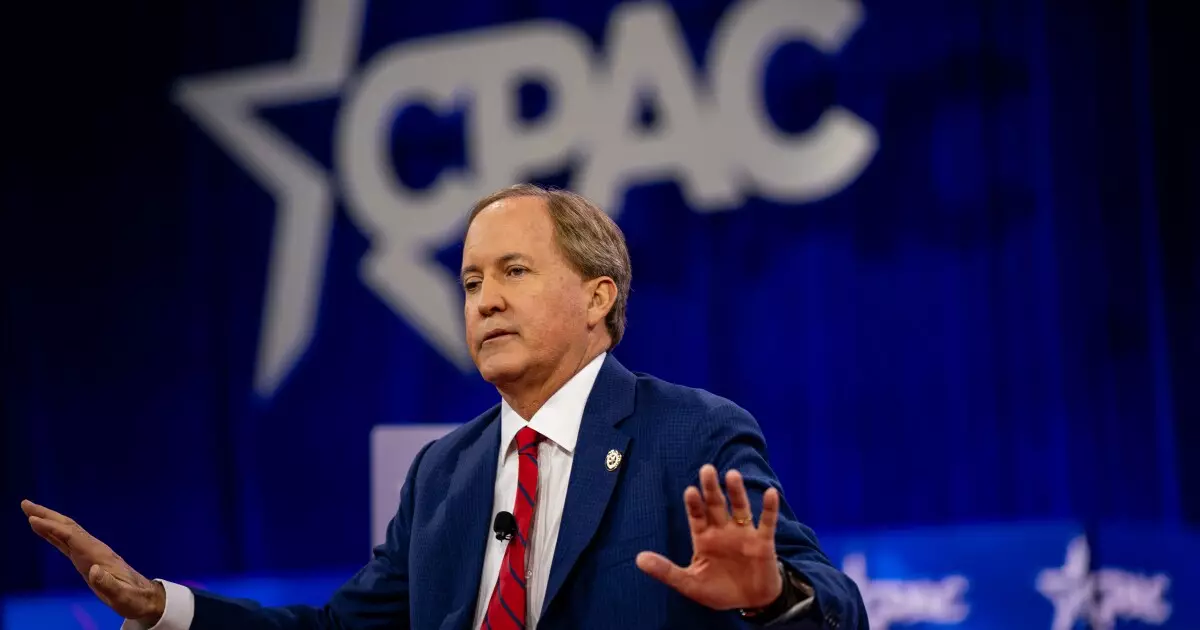The ongoing relationship between financial institutions and environmental initiatives has become increasingly complex, especially in Texas. With Attorney General Ken Paxton’s recent actions against major banks like Bank of America, Morgan Stanley, and JP Morgan for their affiliations with the Net-Zero Banking Alliance, the conversation around banking practices and conservative regulatory frameworks is at the forefront. This article delves into the implications of these actions, the motivations behind them, and the broader context that they fit into.
The Net-Zero Banking Alliance (NZBA) was formed as a collective effort for banks to contribute towards a global transition to net-zero greenhouse gas emissions by 2050. This initiative reflects the growing recognition of climate change as an urgent issue that requires mobilization of financial resources towards more sustainable projects. However, Paxton’s recent statements indicate a clear tension between Texas’ energy policies, which heavily favor fossil fuel industries, and the broader environmental goals that the NZBA promotes.
Paxton argues that banks participating in the NZBA could be construed as participating in “boycotts” against the energy sector, particularly under Texas law that prohibits contracts with companies deemed to discriminate against the fossil fuel industry. This perspective illustrates a staunchly protective stance on Texas’ traditional energy sectors, which are vital to the state’s economy, while simultaneously pushing back against what he describes as “radical” environmental initiatives.
In October 2023, Paxton initiated reviews of certain banks, including industry giants such as Wells Fargo and Barclays, to determine if their involvement with the NZBA could classify them as energy boycotters under a 2021 Texas law. This law aims to shield Texas’ energy interests from financial entities that align with more progressive, environmentally friendly goals. Paxton’s stance emphasizes a legal strategy that combines regulatory oversight with partisan economic policy, reflecting a broader ideological war over energy and climate issues.
His move to close reviews on specific banks after their exit from the NZBA signifies a strategic alignment between the state and traditional energy stakeholders. By publicly commending these banks for their withdrawal, Paxton seeks not only to validate his recent legal actions but also to bolster Texas’s economy by ensuring financial support for its oil and gas industry remains robust.
While several banks have exited the NZBA, it’s essential to note their statements affirming ongoing commitments to environmentally friendly practices. For instance, JP Morgan emphasized a continued focus on advancing low-carbon technologies, suggesting that withdrawing from the NZBA does not equate to abandoning sustainability efforts. This paradox underscores the challenges financial institutions face as they navigate legislative pressures while attempting to maintain a commitment to environmental responsibility.
Morgan Stanley echoed similar sentiments by reiterating its dedication to achieving net-zero emissions. Such statements reflect the complex balancing act that banks must perform, torn between adhering to local laws in states like Texas while appeasing a growing audience of environmentally-conscious investors and customers.
The situation raises questions about the implications of legislative actions on the banking sector and its relationship with broader environmental issues. The challenges to the constitutionality of the 2021 anti-boycott law, brought to light by business advocacy groups, paint a picture of a legal landscape fraught with tension. Further court rulings could alter the dynamics between state laws and federal regulations, impacting how financial institutions approach sustainability initiatives.
Additionally, the back-and-forth between banks and state authorities could influence how other states formulate their own regulations regarding corporate participation in environmental initiatives. The precedent set in Texas could provoke a broader national conversation about corporate citizenship, sustainability, and the accountability of banks in fostering a climate-resilient society.
As regulatory scrutiny intensifies, the banking sector in Texas stands at a crossroads. Balancing the dichotomy between supporting local energy industries and aligning with global sustainability goals presents a significant challenge. The actions of Attorney General Ken Paxton exemplify a growing pattern where financial institutions are increasingly embroiled in socio-political issues surrounding climate change.
Ultimately, the future of banking practices in Texas and beyond will likely hinge on ongoing legal battles and the evolving perceptions of corporate responsibility towards environmental sustainability. It is crucial for financial institutions to navigate this complex landscape thoughtfully, as their strategies could redefine the nature of capital allocation in the context of an urgent global climate crisis.

